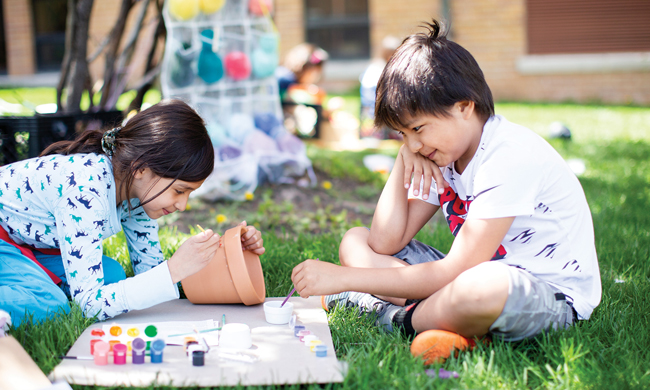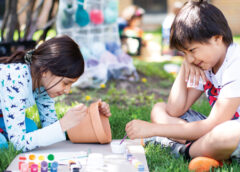
(Family Features) Today’s kids are experiencing unprecedented levels of stress and anxiety at home, school and in their communities. The COVID-19 pandemic, which affected kids in all those places, only exacerbated the problem.
The surgeon general issued an Advisory on Youth Mental Health Crisis to highlight the urgent need to address the growing concern.
“It is normal for children to experience emotional distress as they develop and mature,” United States Surgeon General Vivek Murthy said. “However, the number of youth struggling with feelings of anxiety, depression and thoughts of suicide over the past decade have increased. The future well-being of our country depends on how we support and invest in the next generation.”
Even pre-pandemic, mental health challenges were the leading cause of disability and poor life outcomes in young people with up to 1 in 5 children ages 3-17 in the U.S. having a mental, emotional, developmental or behavioral disorder, according to the Centers for Disease Control and Prevention.
“The pandemic has been incredibly disruptive for youth since it has affected routines, access to social activities and virtually every aspect of their lives,” said Robyn Knecht, director of counseling for St. Joseph’s Indian School, a Native American residential school that helps students move beyond the cycle of poverty, addiction and mental illness with an education and opportunities for a brighter future. “Offsetting those impacts requires an active response from trusted adults that promote healthy development and well-being.”
If you’re concerned about your children, or another child close to you, consider these tips from Knecht and St. Joseph’s.
Create a Support System of Family, Peers and Teachers
The people surrounding youth influence their behavior directly and indirectly. Each child needs a team of actively involved adults at home, school and within the community leading by example and encouraging success. Similarly, encouraging friendships with peers who demonstrate positive habits and good decision-making skills can provide a sense of connectivity and beneficial peer pressure.
Encourage Academic Achievement and Aspirations
Not every student is destined to be valedictorian, but every student can give his or her best effort. Encourage and recognize effort in studies, be conscious of struggles and work with educators to find additional support when needed. Talk about the future and impress upon your child many careers require further training through college, trade school or another form of advanced education. Talk with your child about setting academic goals and equip him or her with the tools necessary to achieve them. Find things your child is passionate about and encourage participation in activities that foster development.
Set Clear Expectations for Behaviors and Values
Although it’s natural to test limits, kids need clear boundaries. Consistently communicating your expectations for behavior and values sets a bar for your child and demonstrates your care and commitment to his or her success. Backing up your expectations with reasonable consequences when your child falls short can help teach responsibility and accountability.
Teach Coping and Problem-Solving Skills
How your child responds to and navigates challenges is as important as the outcome. Teaching your child how to accept disappointment, navigate conflict and be solution-oriented in the face of adversity can serve him or her throughout life.
Promote Involvement in Social Activities
A sense of connectivity is important for humans at any age. Encouraging participation in group activities can help create opportunities to form bonds with other children whose families share similar values and interests. Examples include sports teams and religious groups, as well as age-appropriate jobs where teens can interact with other kids learning the value of hard work.
Don’t Be Afraid to Seek Outside Help
If you notice changes in your child’s behavior or routine, be inquisitive and partner with him or her to work through them. If your child doesn’t open up, it’s OK to find another trusted adult he or she can connect with. Ask your child if there is someone he or she would feel comfortable talking to and look into counseling services in your community. Additionally, mentor and social service programs can help support your child’s journey and foster a supportive network.
Find more ways to address the challenges facing today’s youth at stjo.org.
SOURCE:
St. Joseph’s Indian School


